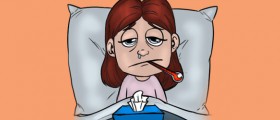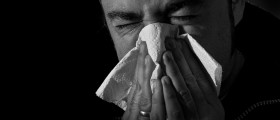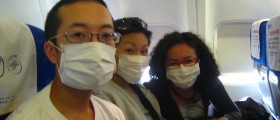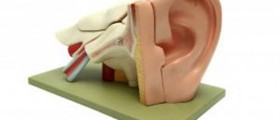
Upper respiratory infections and signs that indicate them
Upper respiratory infections are infections of the upper respiratory tract, which are usually caused either by viruses or by bacteria. The fact is that approximately 200 viruses might cause upper respiratory infections, and factors such as cold weather, or diet, are not causes of the infection. On the other hand, elements such as stress (either mental or physical), inadequate or insufficient sleep and smoking are contributing factors. These infections are usually not serious in nature, but there are some situations in which they can cause serious complications and even some other infections. People who develop such infections are contagious for up to three weeks, and a person can get infected by touching eyes or mouth, for example, after touching some surface that someone who has the virus has touched first. Also, breathing in drops of mucus that is infected is a way in which the person can get infected.
Signs that indicate some infection of the upper respiratory tract are; sore throat, runny nose, nose congestion, cough, fever, and headache, although muscle aches and swollen sinuses might also be present.
Prevention and treatment of upper respiratory infections
When it comes to treatment, this condition cannot be cured with medication, these infections practically go away on their own, but there are some medications that can be used in order to relieve the symptoms until that happens. For example, cough suppressants and decongestants should be used if cough or nasal symptoms are present, but it is also recommended to take vitamin C either through fruits or through nutritional supplements. However, this does not mean that the person should not visit the doctor, particularly if the symptoms are worsening. Upper respiratory infections can sometimes cause ear, sinus or lung infections. It is important to know that antibiotics are usually ineffective because the majority of these infections are caused by a virus not bacteria. Plenty of rest and lots of fluids, chicken soup, gargling with salt water (but not cold), and rinsing nasal passages with saline are some of the home remedies that might be helpful. As for prevention, the best possible method is to avoid contact with the infected person.

















Your thoughts on this
Loading...